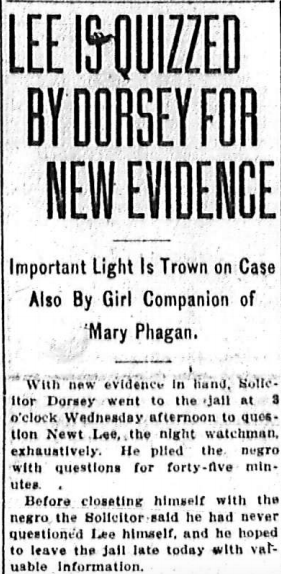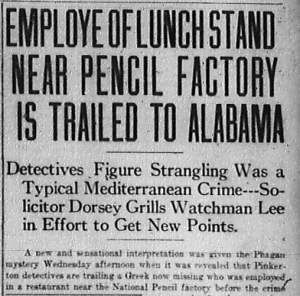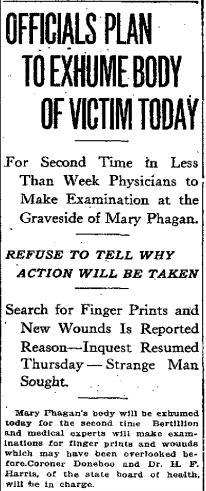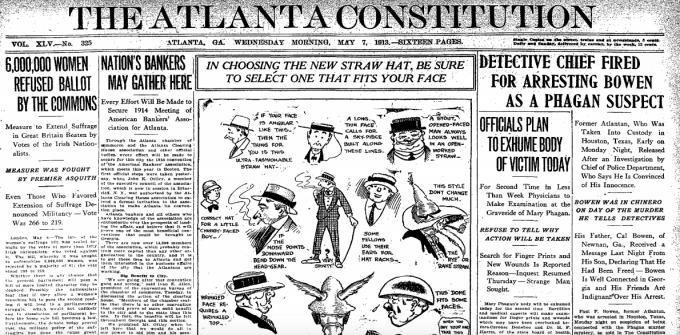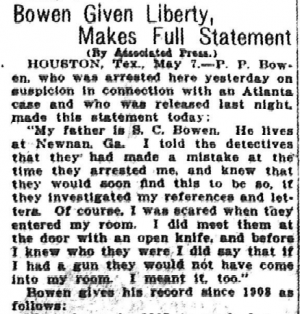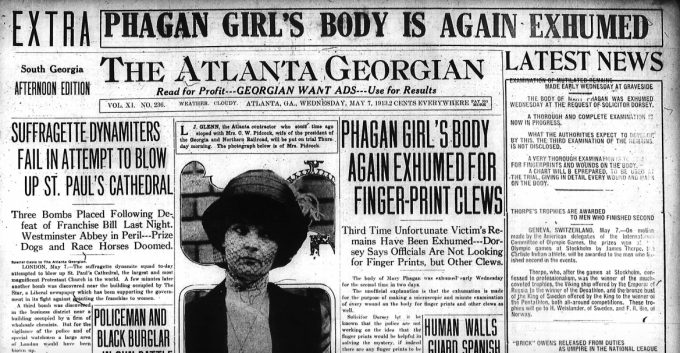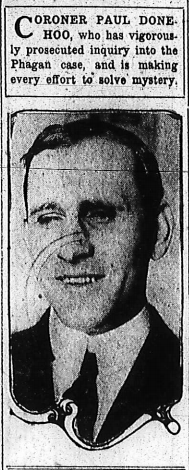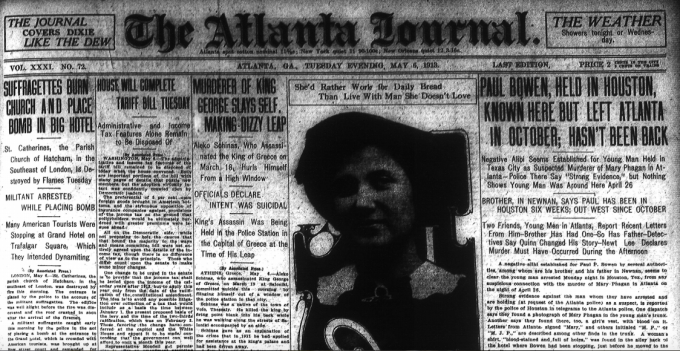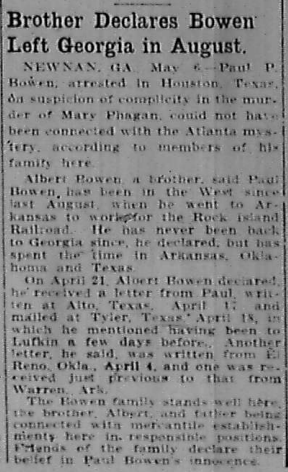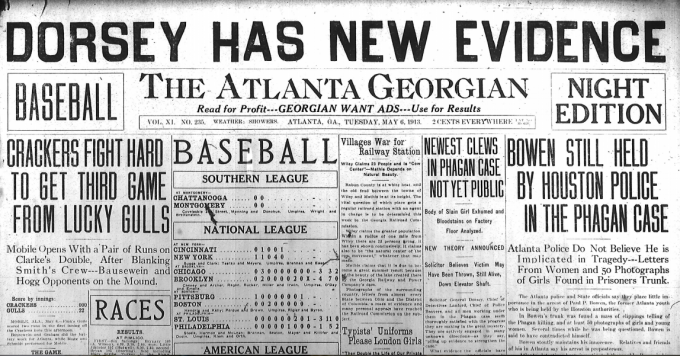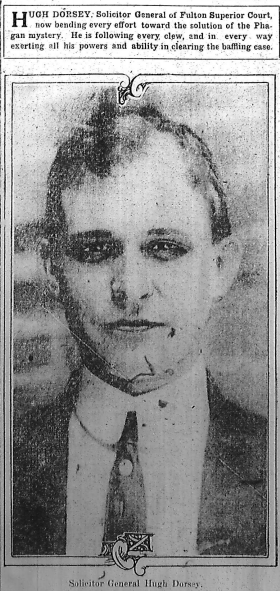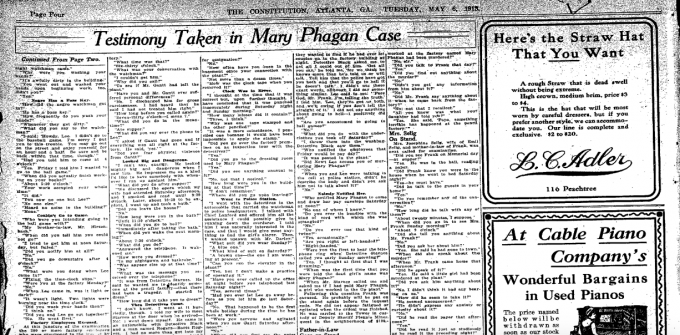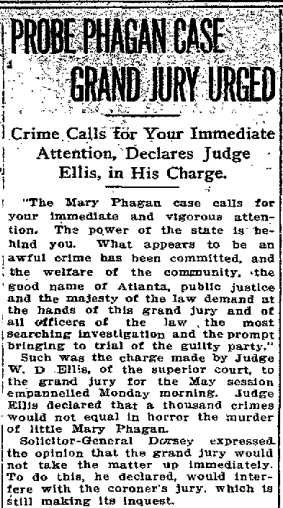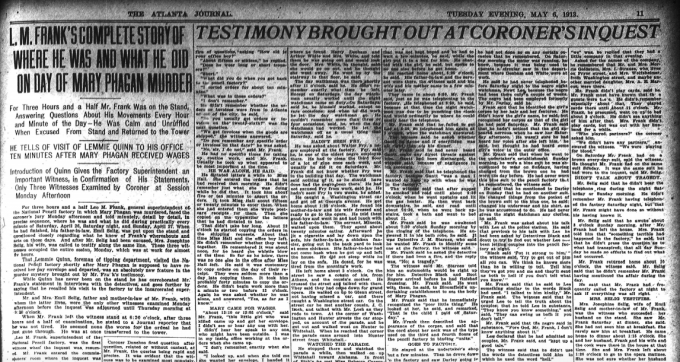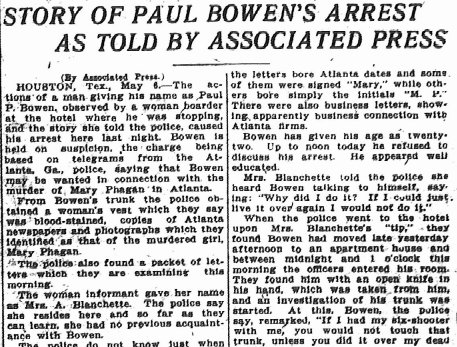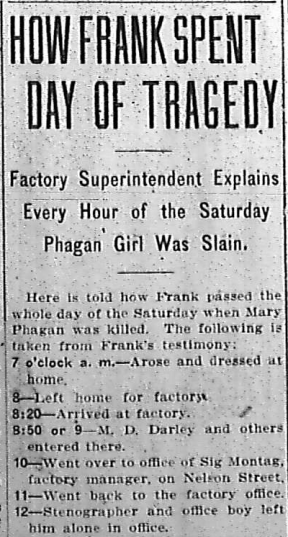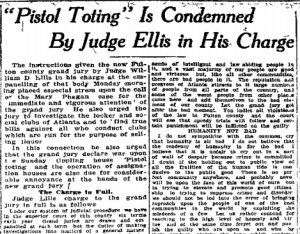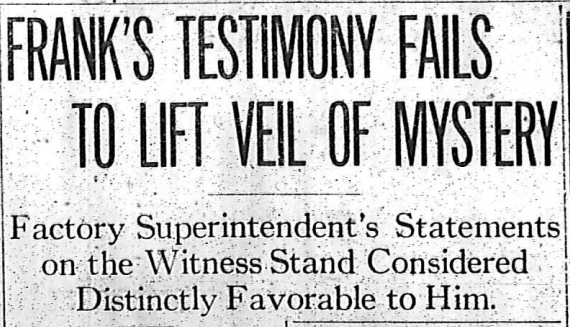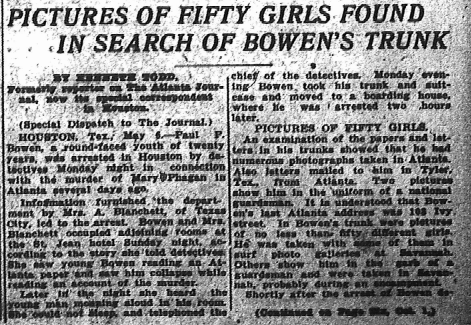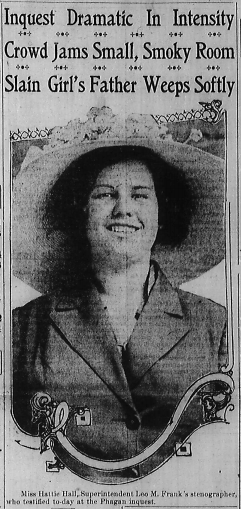
Miss Hattie Hall, Superintendent Leo M. Frank’s stenographer, who testified to-day at the Phagan inquest.
Another in our series of new transcriptions of contemporary articles on the Leo Frank case.
Atlanta Georgian
Thursday, May 8th, 1913
Crowd in Small, Smoke-Filled Room Breathlessly Follows the Phagan Slaying Inquiry.
FATHER WEEPS SILENTLY
Jurors, Officials and Detectives Manifest Intense Interest in Replies of Witnesses.
In a small, crowded and smoke-filled room at police headquarters, Coroner Donehoo on Thursday morning began what it is thought will be the last session of the jury impaneled to inquire into the death of Mary Phagan, strangled to death in the basement of the National Pencil Factory April 26.
The situation was tense and pregnant with possibilities. The fact that the investigation of the case is rapidly drawing to a close, coupled with the admissions of officials that new and important evidence would develop the examination of the witnesses to-day, brought out a large and curious crowd.
At one end of the long table, heaped with notebooks and typewriters, sat Coroner Donehoo, flanked on each side by members of the jury. At the foot of the table sat the newspaper reporters and the official stenographers, four in number. Facing Coroner Donehoo and the jury sat the witness. Ranged along the wall were curious spectators, relatives of the dead girl and friends of the witnesses. Long before the inquest was called every available chair in the room was taken, and late comers ensconced themselves on the window ledges.
Dorsey Takes Active Part.
Prominent among the spectators were the attorneys for Frank, Pinkerton and city detectives and county and State officials. Solicitor Hugh Dorsey sat just behind Coroner Donehoo, and took an active part in the questioning of the witnesses. While Mr. Dorsey asked no questions himself, several times he conferred with the Coroner on the best manner in which to examine the witnesses. Continue Reading →

